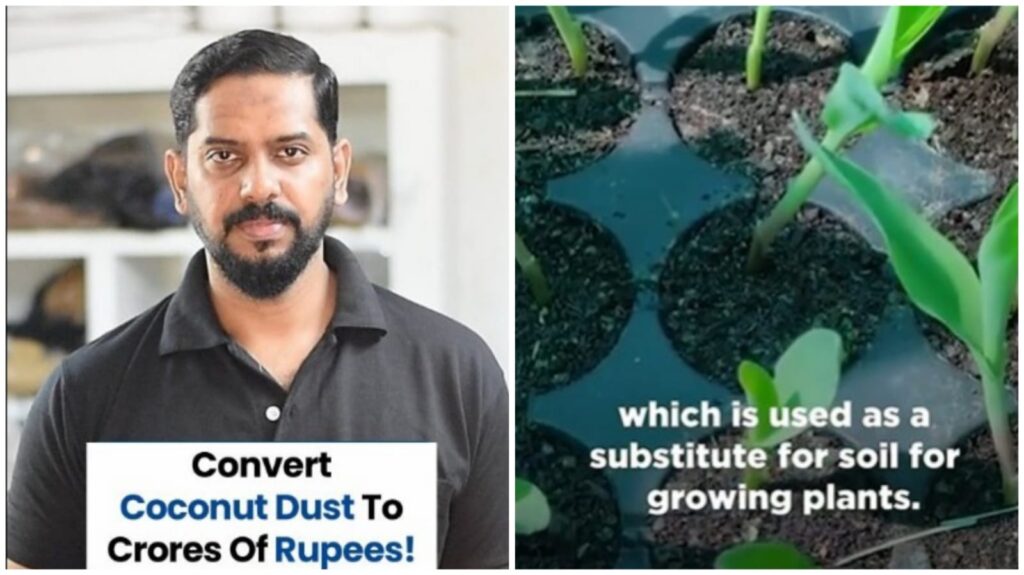From Coconut Waste to ₹75 Crore Enterprise: The Story of Anees Ahmed and Global Green Coir

From Coconut Waste to ₹75 Crore Enterprise: The Story of Anees Ahmed and Global Green Coir
Anees Ahmed, the visionary entrepreneur behind Chennai-based Global Green Coir, has transformed coconut waste into a thriving ₹75 crore business, revolutionizing the use of coconut husks. His startup processes this agricultural residue into cocopeat, an eco-friendly soil substitute widely used in horticulture and agriculture, particularly in international markets.
What Is Cocopeat?
Cocopeat, a byproduct of coconut husks, is a sustainable alternative to traditional soil. It enhances plant growth by retaining water and nutrients while improving soil aeration and fertility. Once regarded as agricultural waste, cocopeat’s potential was first recognized by Dutch innovators in the late 1990s. Today, it is a critical component in making products like coir pots, grow bags, bricks, and blocks, all of which are in high demand globally.

Anees Ahmed’s Journey
Global Green Coir started with a simple yet innovative idea: to turn a waste product into an international commodity. Anees saw the untapped potential of Tamil Nadu’s coconut industry and decided to create high-quality cocopeat tailored to meet global standards.
The company exports to several countries, with a strong focus on Europe, where challenges like declining soil fertility have driven demand for alternatives like cocopeat. Over time, Ahmed expanded operations by introducing nutrient-enriched cocopeat blends customized for diverse agricultural applications.
Tamil Nadu: A Cocopeat Powerhouse
As India’s leading producer of cocopeat, Tamil Nadu supplies a significant share to global markets. Global Green Coir sources coconut husks locally, supporting regional farmers and fostering a sustainable ecosystem. Anees’ business not only reduces agricultural waste but also contributes to reducing pollution caused by the traditional burning of coconut husks.
The Process Behind the Product
To ensure premium quality, Global Green Coir employs a meticulous production process:
- Collection and Segregation: Coconut husks are collected from local farms and sorted to remove impurities like fibers and leaves.
- Washing and Drying: The husks are washed to remove salts and contaminants, followed by sun drying to ensure optimal moisture levels.
- Processing and Packaging: The dried husks are processed into cocopeat bricks, blocks, or loose peat and packaged for export.
Impact and Future Prospects
Anees Ahmed’s venture has had a profound economic and environmental impact. By providing farmers with an additional source of income and reducing waste, he has created a sustainable business model. Global Green Coir now stands as a benchmark for innovation in agricultural waste management.
Looking ahead, Anees plans to expand into new markets and introduce advanced products like bio-fertilizer-infused cocopeat to further benefit the agricultural community.
Global Green Coir’s success story highlights how innovation, sustainability, and determination can turn humble beginnings into a globally recognized enterprise.












